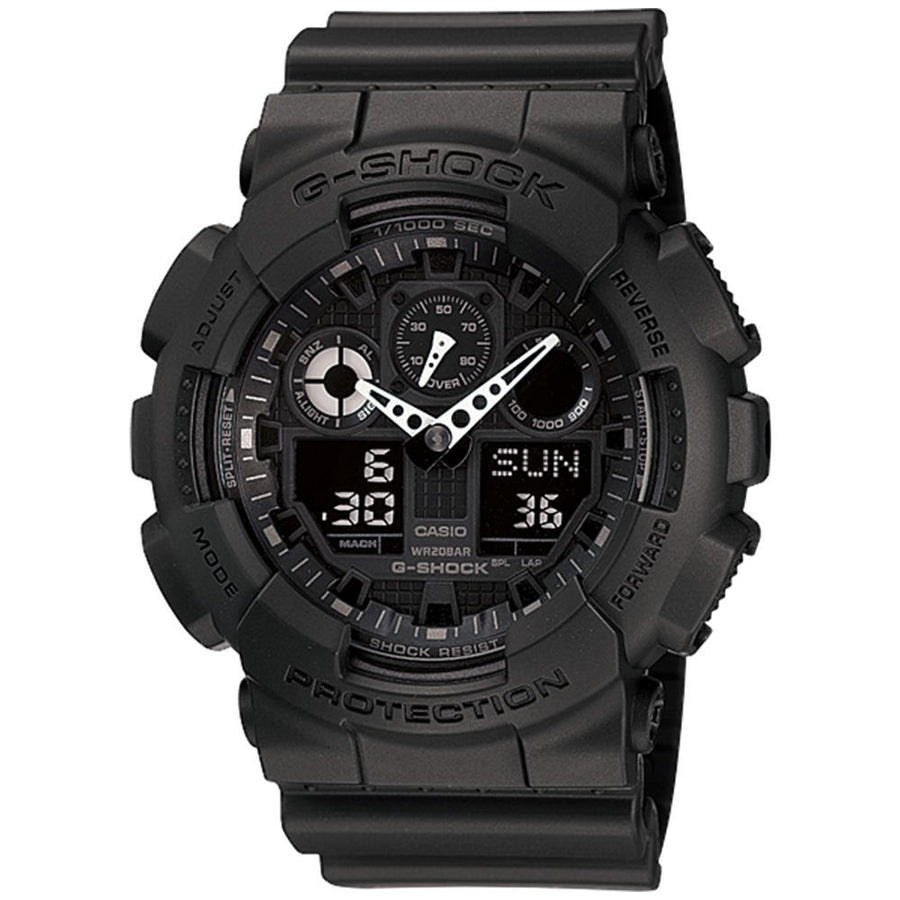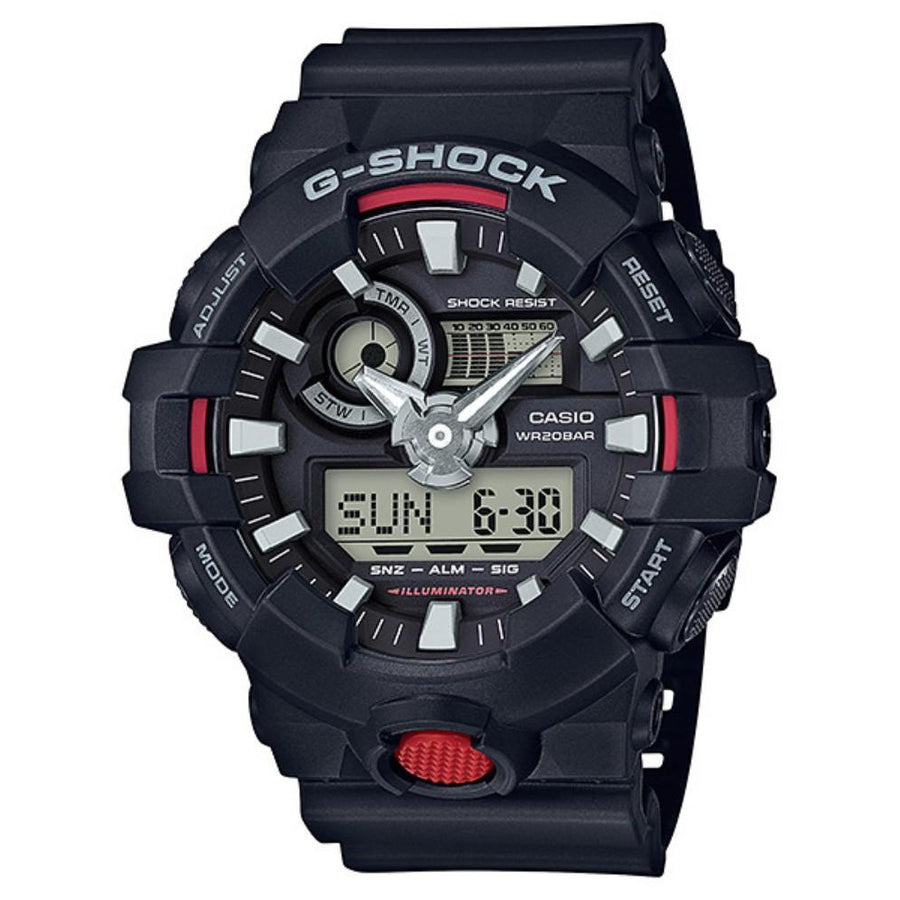Specifications:
1/100 second stopwatch

What is Water Resistance?
Every watch is designed differently and the individual design of each watch determines how resistant to water pressure that watch is. You should always check the water resistance measure of a watch before using it, so you can decide when to wear it and when to take it off.
What is the ATM?
The ATM of a watch is short for Atmospheres and is a measure of the level of water pressure a watch is designed to withhold. A higher ATM means that a watch can withhold more water pressure, whilst a lower ATM mean that it was designed to withstand less pressure.
Metres: A Common Misconception
The ATM or water resistance of a watch can also be expressed as a number of metres, such as 10 metres. This does not mean that a watch can be taken 10 metres below sea level - although that is a common misconception. It is simply the number of times the pressure at sea level a watch can withstand without letting water in. For example, a watch with an ATM of 1 can withstand 10m of pressure, whilst a watch with an ATM of 5 can withstand 50m of pressure.
Using Your Watch in Water
The ATM of your watch will allow you to determine how and where you can use your watch. The ATM is usually engraved on the case-back of every watch. If you're having trouble finding it you may need to visit the watch manufacturer's website or contact them directly. You can use the chart below to guide you on using your watch in water. For example, if your watch has an ATM of 5, you can safely use it when you're washing hands and if it's raining outside, but you should not take it diving, swimming, bathing or showering.
Swimming, Bathing or Showering With Your Watch
The Watch Factory recommends purchasing a watch of at least 20ATM if you wish to wear your watch whilst swimming, bathing or showering. Wearing a watch with a lower ATM whilst swimming, bathing or showering may not always damage the watch, however we urge on the side of caution due to the delicate nature of watches.
Water Getting Into Your Watch
The internal mechanisms that keep your watch ticking are protected from water by the case, crown and seals that prevent water from getting in. Damage to any of these parts of your watch may void your watch's water resistance and cause moisture to get in. A common issue is when the crown has come loose and the seal has been damaged, which allows moisture to get in. If you believe that there is any damage to your watch, it is best to get it assessed by a watch maker who can check the water resistance is intact.

We currently provide shipping services to both Australia and New Zealand. For more details regarding our shipping policies, please refer to our dedicated 'Shipping Policy' page.
Products must be returned within 30 days of receiving your order. They should be in their original condition, unworn, unused, with all tags still attached, and in the original packaging. For more details, please refer to our return policy.
Found a better price? No worries! We’ve got you covered. For more information, please read our price match policy.





















